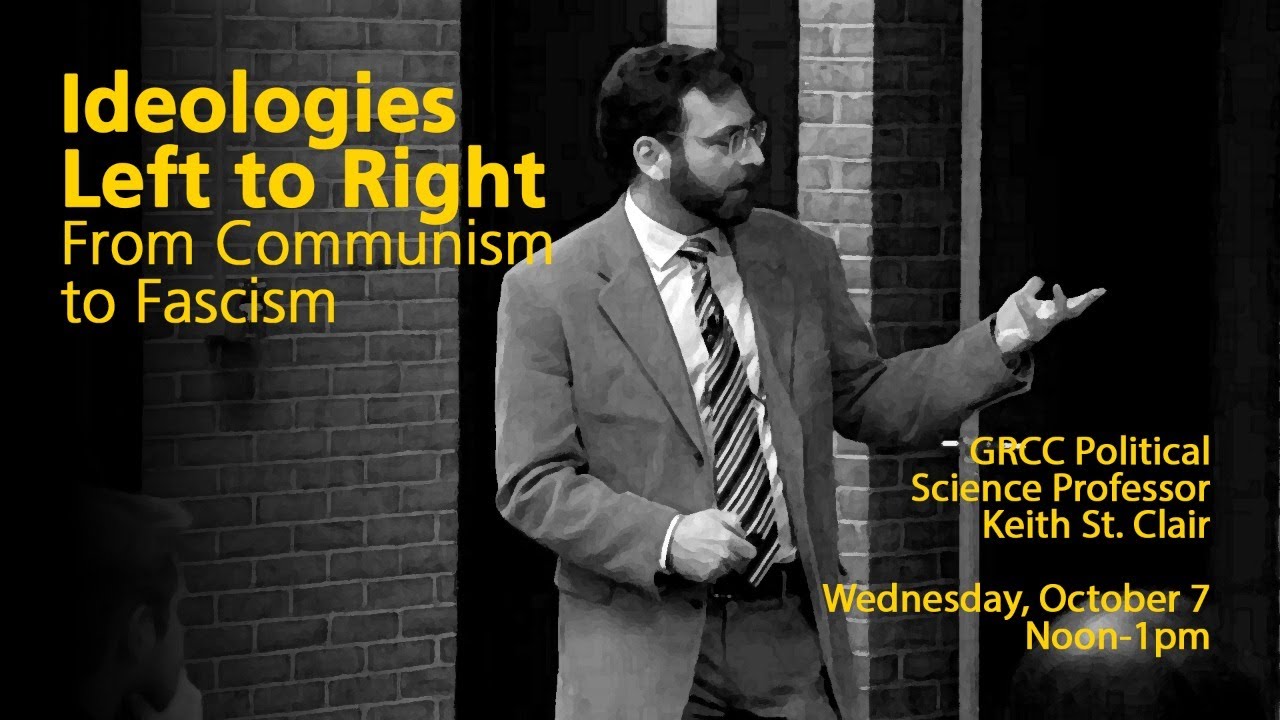Professor Keith St. Clair from Grand Rapids Community College provides a comprehensive exploration of political ideologies, focusing on their philosophical underpinnings, historical roots, and contemporary expressions. He explains that an ideology is a coherent philosophy about how government should govern, offering predictability in political behavior. The lecture traces the origins of the “left” and “right” political spectrum back to the 19th-century French National Assembly seating arrangements. The traditional American ideological divide is between liberals (left) and conservatives (right), but there are also more extreme ideologies on both ends, including communism and fascism.
St. Clair contrasts the core beliefs of conservatives and liberals on economic and lifestyle issues. Conservatives favor minimal government intervention in the economy (laissez-faire) and advocate government involvement in promoting traditional social values, such as marriage between a man and a woman and restricting abortion and drug use. Liberals, conversely, support active government roles in regulating the economy to reduce inequality and provide a social safety net, while advocating minimal government interference in personal lifestyle choices like marriage equality, abortion rights, and drug use.
Other ideologies discussed include libertarianism, which combines conservative economic views with liberal social policies, and populism, which calls for strong government intervention in both economic and social matters to protect the “little guy” and maintain social order. More extreme left ideologies, like socialism and communism, emphasize state control or overthrow of capitalist systems to achieve economic equality, whereas extreme right ideologies, such as nationalism and fascism, focus on a unified cultural identity, authoritarian leadership, and xenophobia.
Professor St. Clair highlights the historical antagonism between communists and fascists, their use of violence, and contrasts them sharply despite superficial similarities in tactics. He stresses that political parties are not synonymous with ideologies, noting the shifting ideological affiliations of American Democratic and Republican parties over time, and the increasing polarization and loss of ideological overlap.
The lecture also touches on the role of the internet in amplifying extremism, the dangers of identity politics in undermining democratic discourse, and the importance of trust in elections and free press in maintaining democracy. St. Clair critiques recent developments within the Republican Party, characterizing it as increasingly populist and nationalist under Donald Trump’s leadership, diverging from traditional conservatism. He concludes by urging the condemnation of all political violence and emphasizing the importance of understanding ideologies to predict political behavior while recognizing individual nuances.
Originally posted 2025-06-03 03:58:13.

